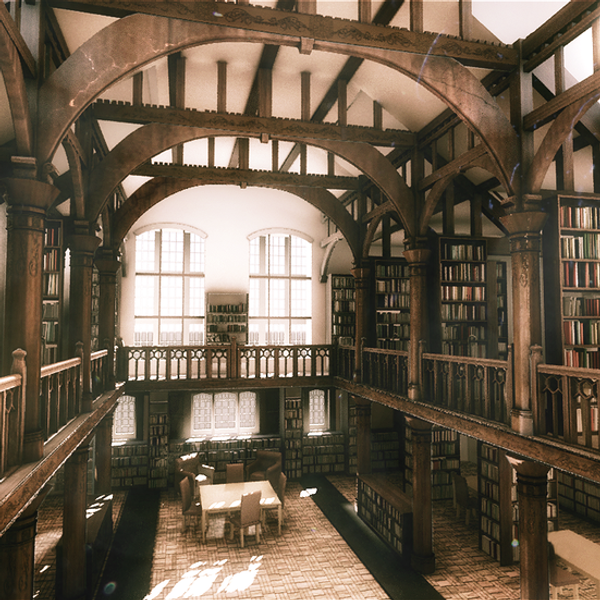It is human nature to ask questions with the hope of retrieving answers; we have an ingrained urge to know. Man desires a complete understanding of the mysteries of the universe. For thousands of years, humans have attempted to fathom the unfathomable. Some still have faith in the tales, and others don’t. Regardless of belief, it’s important to reflect upon where we came from and how we originated, and we can turn to the ancient stories to help us do so. Creation myths reveal significant truths about the very origin of Earth, who created it, and the fall of man.
The Earth began without form or shape. In many different stories the word used for the dark abyss that existed before existence itself is simply “void." The Greeks described the void as chaos and darkness. They attempted to make something that is completely intangible tangible. The Mayans believed that nothing at all existed before creation. No animals roamed the Earth, for there was no land for them to roam. Humans strove to describe what there was when there was nothing, but that was an extremely difficult concept to grasp, especially before the scientific advances of today. Even now, what other word might be used to explain the nothingness? Humans have been attempting to infer what might have existed before tangible existence for thousands of years, but after many millennia, the abyss continues to be called a void. In Genesis, the “earth was a formless wasteland,” and God created out of nothing (Gen 1:1). Not only did humans strive to explain nonexistence, but they also showed reverence towards the authority of a higher being.
The creation of the universe is a far too complicated task for any human to accomplish. Humans may ask, “Where did it all come from?” Answers today will differ from endless scientific theories to simply God. In any situation, the answer will not be that a mere human created the Earth. Humans have sought to explain the creation of the world since the beginning of history. Both today and thousands of years ago, many would say the world came to be through a creator. Whether one designer or multiple architects, various stories involve a higher being willing the world into existence.
Genesis describes a single God as perfect and transcendent. In contrast, the multiple gods of the Popul Vuh and the Greek creation story had many imperfections. In both polytheistic cultures, the gods had to go through multiple trials to find the perfect human, while Genesis tells of God creating the first human, Adam, and immediately finding his work pleasing. The creators may differ between various stories, but creation myths often speak of a powerful being that exists beyond the power of humans and science. Is this naturally because humans need an explanation for the seemingly unexplainable, or is it truly because they believe a higher being wished humanity to be? We can’t know now, but we do know that humans provided themselves with an explanation: they worship the higher being. The gods gave ancient civilizations not only an answer but also a purpose.
Humans attempted to answer the question of how man was created and how he came to have flaws. People desire to be perfect, but because they cannot accomplish true perfection, humans attempt to explain the error of their ways that led to the flaws in mankind. Humans are not perfect. People make mistakes. People get sick. People die. Humans are mortal. Mankind has been left upon this Earth constantly asking the question, “Why?” When “because I said so” ceases to suffice, humans seek an answer, and creation stories attempt explain the origin of these flaws. In many stories humans first existed without imperfections. Whether because of the will of humanity or his Creator, the myths tell of the fall of man.
The first mistake in some civilizations is explained not to be the fault of man but rather of the gods who rule over him. In numerous stories, such as Popol Vuh, the gods feel threatened or unloved. In other stories, such as in Genesis, man's own shortcomings cause his fall. The human beings wished to be better than God and disobeyed Him. The humans did not give God all their love; in turn, God gave them death. African culture also describes the fall of man as due to his immense pride. Blindness defeats pride, but blindness, too, is defeated, and only death can conquer the pride of humanity. Similarly, the Greek creation story describes the fall of mankind as a punishment, yet the fall is not because of the human’s own doing; rather, the cause of imperfection was the wrath of Zeus after Prometheus provided mankind with fire. Fire gave man strength and power. Zeus, too, began to feel threatened, so he caused mankind to become imperfect. In any case, the stories explain that people are not perfect and never will be.
Mankind constantly yearns for answers and explanations. Through creation myths, humans have attempted to answer the professedly unanswerable questions. One might assert that myths are figments of past civilizations’ imaginations and simply cannot be true; however, despite the various failings of creation myths, truth can be found within each story. These stories tell of past civilizations and their beliefs about how the world came to be. The myths are still relevant though they were composed long, long ago.
Do we believe these origin stories or regard them as mere fiction? You can choose. No matter what you decide, there’s a history lesson, a cultural understanding, and a moral about the nature of humanity within each of the stories. Humans have never known all, but we've always wished to discover, always wished to know. Throughout civilizations, man has sought and found. Humanity continues to change and progress and regress, but some aspects of human nature never fade.





















